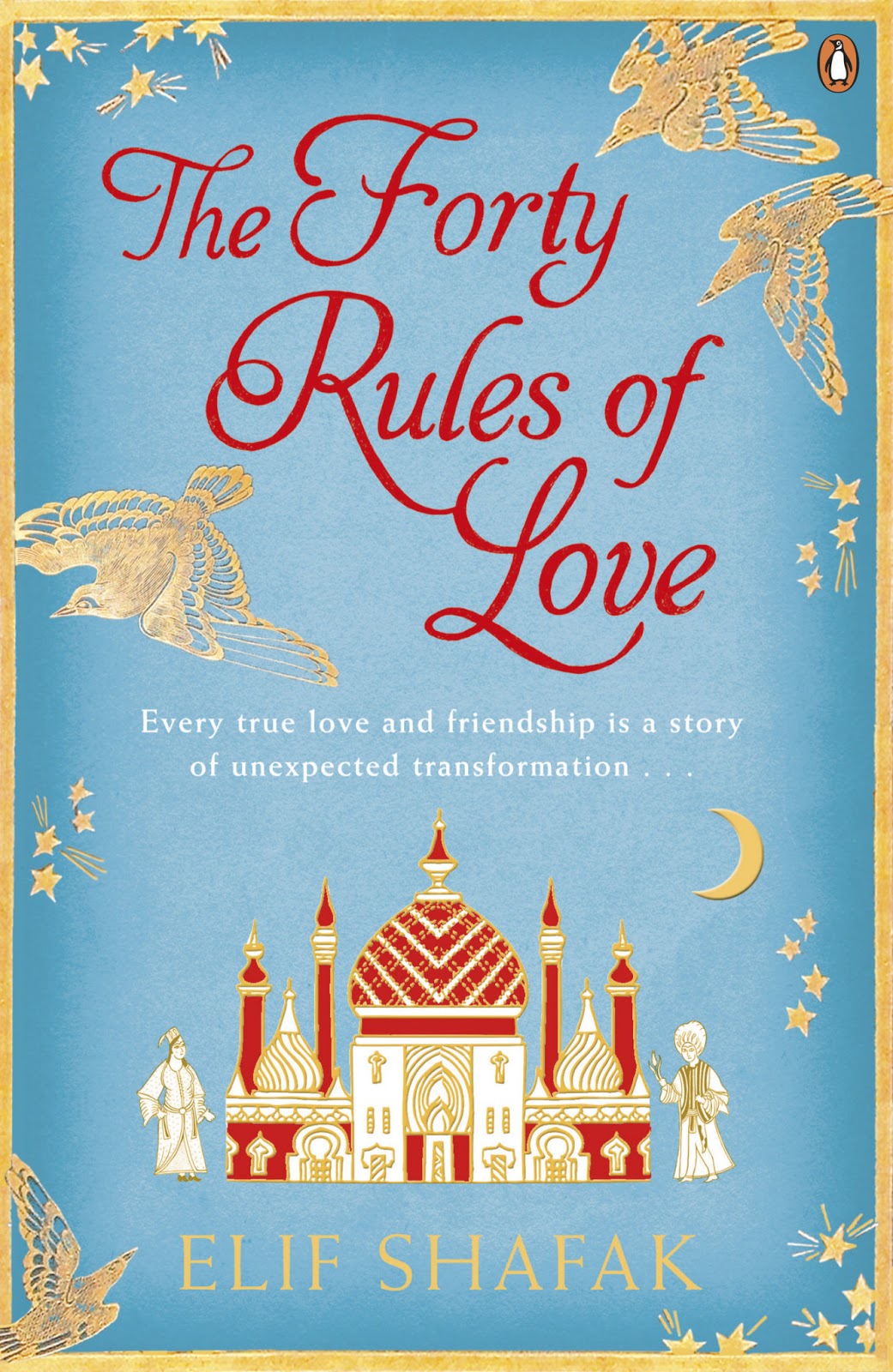Come on a journey through time and cultures, to explore women who had the courage to believe in their words - Elif Shafak
The ‘Forty Rules of Love’ is a mix of modern-day romance and the lessons of ancient spiritual leaders that will open the heart of anyone ready.
The story follows an American housewife in her struggle with the nature of love. She is a stay-at-home mom of 3, a dentist’s wife, and a devoted cook. As her children no longer need as much of her time as before, she decides to get a part-time job. She finds work as a reader for an editorial company. The first book that is placed in her hands is written by a Sufi and an admirer of the poet Rumi. She instantly recognises that this book was destined to enter her life at this moment.
I feel the same. I allowed myself to take this mystical journey into modern day love, influenced by the spiritual connection between the great poet Rumi and his friend and inspiration, a Sufi by the name of Shams Tabrizi.
The poetry and 40 rules that flow throughout the story take you on a journey through 13th Century Turkish society, relating it to modern day events. In it lives ideas of love and relationships that have survived centuries.
“Every true love and friendship is a story of unexpected transformation. If we are the same person before and after we loved, then we haven’t loved enough.”
One of my favourite quotes from Rumi that I had found before reading The Forty Rules of Love is “The wound is where the light enters us” — this book is the essence of what lies in these words. Looking at how the characters become transformed, not only in their love but in their loss.
This is a nurturing story of strength and beauty that comes when you open yourself truly to your relationships with others, and with love.
“Patience is not sitting and waiting, it is foreseeing. It is looking at the thorn and seeing the rose, looking at the night and seeing the day. Lovers are patient and know that the moon needs time to become full.” Shams Tabrizi
Elif Shafak is Turkey’s most well-known female author. She is a columnist, a speaker, and an academic. Shafak blends eastern and western methods of storytelling and writes about women rights, minorities and immigrants. She has lived in Istanbul, throughout the United States, London and Madrid. Her nomadic life has had a great impact on her stories — her writing has thrived as she travelled.
After writing novels in Turkish, Shafak began writing in English, believing that she didn’t really make a conscious choice to do so. “It is a challenge to write in English, both intellectually and spiritually. Ultimately there is a joy in doing so.” She was accused of betraying her nation when she began to write in English, even so, Shafak continued to release novels in English.
“I believe that if we can dream in more than one language then, yes, we can also write in more than one language.”
Istanbul is a major influence in her work, the mix of East and West in her stories is alive in the nature of the city. Half sits in the West and half in the East, showing that there can be a harmony in their collaboration. As Shafak puts it “East and West is no oil and water. They do mix. And in a city like Istanbul, they mix intensely, incessantly, amazingly”.
She also writes articles for numerous international magazines, including The Guardian, about the state of Turkish politics, check out some of her articles here.
Not only do her words in her novels give us insight into the history and social conflicts of her country — she also uses them to give us factual information about the current “political turbulence” in Turkey.
I first came across Shafak in a video of her at TED Global, with her talk on The Politics of Fiction.
In this talk, she discusses the labels on literacy. A Turkish women writer is expected to write about Turkish women. Unfair expectations created through what it says on their passport, rather than allowing creative freedom in the writer.
Stories have the ability to travel across all borders, as Shafak shows us. “As long as it comes from our hearts we can write about anything and everything.”
Everyone has the ability to write what they feel, and the freedom to do so if they desire.


Hi! I am a robot. I just upvoted you! I found similar content that readers might be interested in:
https://sarahclelandblog.wordpress.com/2017/11/27/women-writers-elif-shafak/
Is nt this forty rules of love by rumi? I'm reading it in pdf